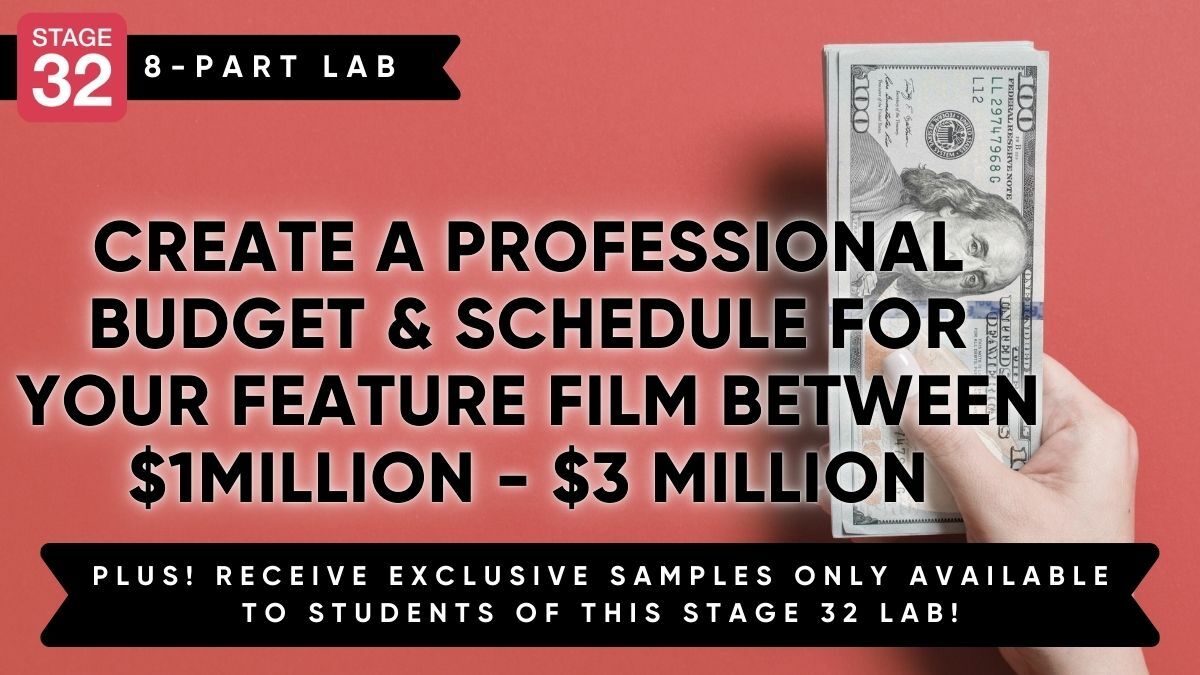I received a feedback email from a script competition that I had entered and the email told me that I wouldn't advance in the competition because my script was missing x, had too much x, or needed more x. The particular script that I entered into the contest has been read by two major execs in the industry and they loved the script, but then I receive an email like the example above. I know that in this industry rejection or harsh criticism is something everyone will have to deal with, and I am perfectly ok with that, but this rejection email got me thinking. like many of you, I have spoken to people in the industry that have loved certain scripts, but then others have read it and said "this is no good." Of course, a big chance is getting that particular work into the "right" reader's hands, but what do you do when you get conflicting critiques? Every writer has their own voice and writing style, but if you get 50% of the people praising your script and the other 50, insisting on improvements, what do you do? Do most of you keep forging ahead with your works as is and just hope to land the right reader for your script or do you start to adapt or change your style?


1 person likes this
Because people liked your script means that some would like it if filmed. The same as when some dislike it. Make sense.
1 person likes this
Netflix says they would rather that everyone in a family likes one of their shows a lot, than everyone in the family likes just one show a little, since they sell content by subscription. The days when a show was unsuccessful unless it appeals to nearly everyone are long gone.
1 person likes this
Fifty percent like it? Way ahead of the curve. If someone pans my script and they provide detail as to why, I try to analyze if anything they said makes sense. Maybe the setup was thin, maybe a critical plot piece left out - could be anything.
But here's my critical point: Readers all come with predispositions to story - especially in this politically charged world. It's easy to spot in their notes. Ignore it. Take what you can from their critique and toss the rest. Again, half like it - bonus.
1 person likes this
I never get feedback so I never experience conflicting feedback. However if I ever did decide to get some feedback I would only make changes to my screenplay if I felt they would make my screenplay better.
3 people like this
There are a lot of maybes to be considered. Dogs like to pee on fire hydrants, making it their own. There are Producers, Directors & Actors who like to do the same on your script. Know who you're dealing with when you analyze their feedback - it's just good business sense.
3 people like this
I have found that Readers often bring their personal opinions into the critique. So you have to look at this way - is this a note, or is this an opinion? However, if you hear the same thing 2 or more times take a deeper look at your script. There may be some truth there. Then the question becomes - How do I make the Readers note go away? Sometimes one sentence can resolve it.
Continued success to you.
I have had the same thing happen, it was a bit disheartening at first but then I remembered that you are not going to please everyone.
But I suggest go back to your script and take a fresh look and see if there is room for improvement.
But keep working it will happen
1 person likes this
I might be boo-ed by some here, but I've been lucky enough so far not to receive a single negative opinion or review without being constructive such as "you suck" or "this is bad" etc....so actually my faults applied helped me develop a better approach and I've taken a few of those notes to my work credo...
2 people like this
I've always been very open that I feel much of the feedback I received early on did more damage to my progress than good. Quality constructive feedback that's based in craft is really hard to find from peers who make up most of the feedback services that are within immediate reach of aspiring writers.
My work was very polarising; the script that got me a three on the Black List also had me featured by Amazon Studios and eventually hooked in my producing partner. For all the fancy words and opinions given, it's all a total crapshoot. Hell, it's a crapshoot even at a studio level.
What I wish I'd done is focused on the positive feedback from people who loved what I was doing at its core and used that as motivation to keep practicing and learning the craft from proven professionals. I probably lost as many as five years trying to get validation from people who were never going to give it because they were either trolls, pedants, or on a different wavelength.
1 person likes this
@CJ Walley, It's funny that you mentioned the Blacklist and the score that they gave you. I just received my score from Blacklist and I also got a 3.
Barry, The Blacklist scores /10 so I was very low on my score. Part of the issue was, the reviewer said my s riot was a drama, comedy but my script is purely a comedy. I emailed the support team and spoke to them about the issue, they are having the script reevaluated.
2 people like this
I keep a feedback file for each of my scripts. It is separated into POSITIVE comments and NEGATIVE comments,
Positive comments generally do not help you improve a script. Of course, they are good for the ego and to reinforce some choices you made. But honestly, they almost never drive changes or improvements.
Negative comments are much more valuable if you handle them correctly. For me, I write down why I agree or disagree with the comment. It's a pretty good exercise in that it will either end up with a positive change to your script or reinforce a decision you already made. But you need to be careful in terms of whether or not the negative comment reflects a flaw in your script or just a different preference of your reader.
For example, I wrote a script that was based on a hot-headed protag that swore like a sailor. One negative comment I received was that the character's dialogue was too vulgar to be marketable. To me, that was clearly a personal preference of a reader rather than a story flaw and kind of silly in that they had no idea of who I was marketing the script to in the first place (e.g., it wasn't the Lifetime Channel). Conversely, look for stuff like - I was confused by xxxxx..... The pace slowed at page xxxx.... This plot point didn't make logical sense, etc. I have often found that those types of comments led to a positive change in my script.
But most of all recognize that this business is inherently opinion-based. There is no metric for quality . So, to expect that any of your work would receive consistent reviews (all bad, all good) is a false premise to start with. It just won't.
2 people like this
Hi, Robert DeVerger congrats on completing your script and submitting for coverage! I know receiving conflicting notes can be confusing. I think one way to look at it is that part of the creative process if very subjective, so some readers may enjoy certain aspects and others may not, just based on taste. I personally think that if you receive conflicting notes, it may be your judgment call at that time. Also, if you choose to submit here on Stage 32 to an executive, I would reach out to Jason Mirch (j.mirch@stage32.com), the Director of Script Services. He’s really great at pairing the exec with the type of script.